Book Review
The Information Diet: A Case for Conscious Consumption


Junk information is as toxic as junk food. As a group, Americans are fat. Our diets are out of control: we eat too much and, Clay Johnson explains, we take in too much in other ways. This book is his attempt to convince you of that and to make recommendations for how to curb our intake.
Johnson examines obesity and our cravings for fat, salt, and sugar, and says that our information choices lead us down the same paths: we look for opinions, facts, and treatments that agree with what we already believe. It makes us feel good to have affirmation. Over time, we avoid topics and opinions very different from our own, or we tend to approach them only to argue, to reinforce our current and long-held positions. This is called “confirmation bias.” Its danger is that we rarely get exposed to anything new, and rarely revise our positions. “It’s too high of a cognitive and ego burden to surround ourselves with people that we disagree with,” Johnson writes.
Search Engine Optimization
Johnson’s look at news organizations includes an explanation of how headlines are crafted. Most online sites are forced to construct headlines that will get you to click on them, regardless of their relationship to the story content. We call this search engine optimization (SEO)—I work for a daily newspaper with an online component—and its purpose is to get you to click on stories so that we can show our advertisers that people are seeing their ads. All online news organizations participate in this SEO effort to varying degrees.
Johnson talks about the spectrum of TV news stretching from Fox to CNN to MSNBC, explaining how they got to their political positions and why making the news choices they do works for them.
After he sets up the problem, Johnson provides strategies for how to change our information diet. The strategies require a sense of humor and willpower. I was amused that one of the tactics for sharing the ideas in the book was to join a local online group, which would be just one more way to be online, but then he encourages us to meet face-to-face, so I got it. But still…
Pragmatism
I recognized my favorite branch of philosophy near the end of the book: “Most of us give too much weight to information that’s not actionable and relevant to our daily lives,” Johnson states. In this section, Johnson is encouraging us to forego international news for local news. I was reminded of John Dewey’s and William James’ brand of thinking called pragmatism—the only uniquely American contribution to philosophy. The idea is that we don’t waste energy working out how many angels can dance on the head of a pin, unless it affects our daily lives in some way. Spend energy only on things that matter. On this, I agree with Johnson one hundred percent.
I got bogged down toward the end of the book when he got political, as will many non-American readers. He is clear about his background in politics, so this is not a surprise, nor is it inappropriate. I admire that he makes a call to action, and many readers will appreciate the routes he suggests to make things better.
But I think most of the point of fixing this is just about each of us choosing to turn off the darn computer/phone/mobile device more often. To be clear, I am also reading a book about how we think about food, which advocates mindful eating—basically, slowing down and appreciating the moment we’re in, rather than rushing to get to the next, better one. The ideas in this book (Savor: Mindful Eating, Mindful Life by Thich Nhat Hanh and Dr. Lilian Cheung) will fit with the modifications of both food and information diets.
Recommendations
The Information Diet is a good introduction to the idea of turning off the noise, but it can go further in future editions.
I think this book would have been more effective with a few more strategies for changing our information diets. Johnson encourages readers to visit his Web site for an ongoing discussion, and the blog and forums do indeed have more ideas. But again, I am faced with the dilemma of spending more time online to find out how not to spend so much time online.
Dr. Andrew Weil recommended news fasts years ago. Even though I work at a daily paper, I have been on such a fast for at least 20 years, spending almost no time on TV news except for very rare events. There is a desperation about television; TV producers they want you not to change the channel. That makes it hard to take for some of us. I suggest trying a one-day news fast and then expanding it, is my suggestion. Johnson suggests ditching cable altogether, which I saluted, though I won’t be going down that path just yet. A friend of mine recently moved and didn’t buy cable TV, and he’s thrilled with his newfound savings in money and time. He’s discovering several great TV shows on disc a few years after they’ve aired, and he’s enjoying himself far more than before.
Reader Comments (0)
Add A Comment